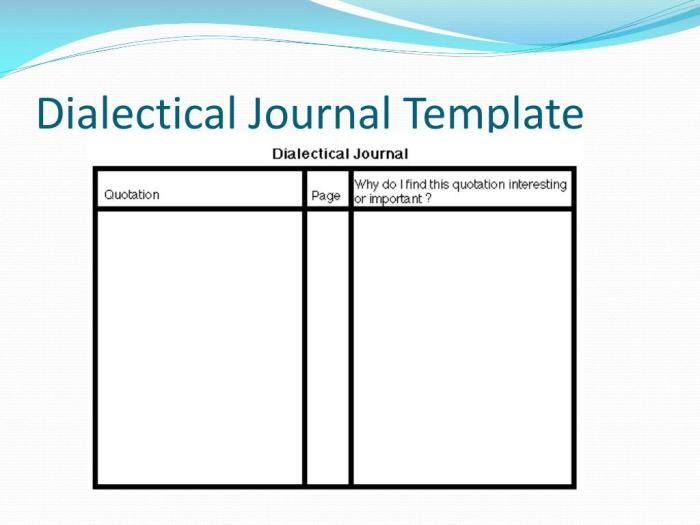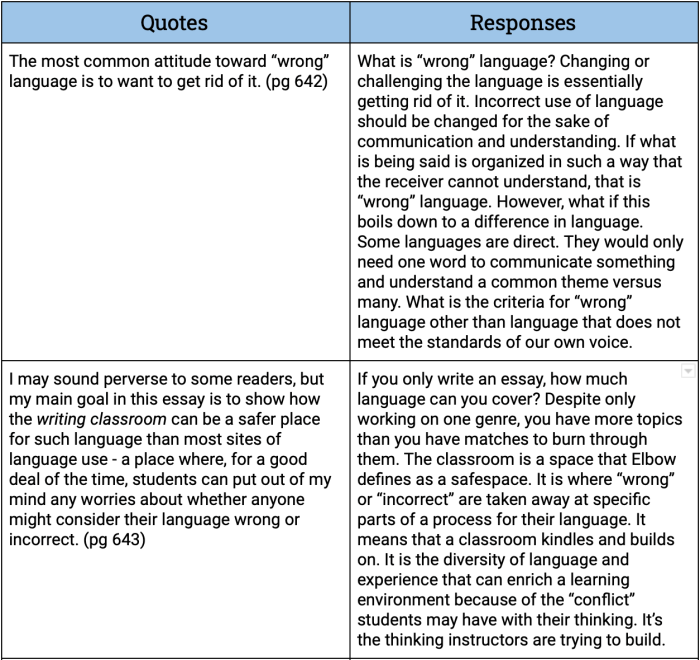Example of a dialectical journal: An in-depth exploration of a dialectical journal, its components, methods of creation, applications, and benefits for critical thinking and comprehension.
Dialectical journals are a valuable tool for fostering critical thinking and comprehension. They encourage learners to engage with diverse perspectives, analyze opposing viewpoints, and develop a balanced understanding of complex issues.
Introduction to Dialectical Journals

Dialectical journals are a type of reflective writing that encourages critical thinking and deep comprehension of complex texts. They are used to record and analyze different perspectives on a topic, promoting a deeper understanding of the subject matter. Dialectical journals are particularly effective for exploring controversial or multifaceted issues.By
actively engaging with opposing viewpoints, students develop a more nuanced and balanced perspective on the topic. The process of synthesizing information from different sources helps students form their own informed opinions and make connections between different ideas.
Components of a Dialectical Journal

Dialectical journals consist of three key components:
-
-*Thesis Statement
A brief statement that summarizes the main argument or perspective being examined.
-*Opposing Viewpoints
A section where students record opposing viewpoints or arguments related to the thesis statement.
-*Synthesis
A section where students analyze and reconcile the opposing viewpoints, forming a more comprehensive and balanced perspective.
Methods for Creating Dialectical Journals: Example Of A Dialectical Journal

To create an effective dialectical journal, follow these steps:
-
-*Identify the Thesis Statement
Read the text carefully and identify the main argument or perspective being presented.
-*Analyze Opposing Viewpoints
Research and identify different perspectives that challenge or support the thesis statement.
-*Record Evidence
Gather evidence from the text or other sources to support the opposing viewpoints.
-*Synthesize Information
Analyze the evidence and opposing viewpoints to form a balanced perspective that incorporates different perspectives.
-*Reflect and Evaluate
Regularly review and evaluate your dialectical journal to identify areas for improvement and deepen your understanding.
FAQ Insights
What is the purpose of a dialectical journal?
A dialectical journal helps learners engage with diverse perspectives, analyze opposing viewpoints, and develop a balanced understanding of complex issues.
What are the key components of a dialectical journal?
Key components include a thesis statement, opposing viewpoints, and a synthesis that reconciles these viewpoints.
How can dialectical journals be used in different educational settings?
Dialectical journals can be used to analyze literature, explore historical events, examine scientific concepts, and more.


